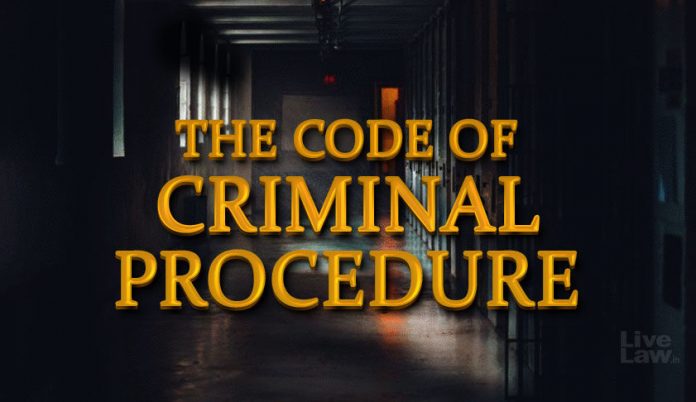This article has been written by Antony Francis pursuing Diploma in Advanced Contract Drafting, Negotiation and Dispute Resolution and edited by Shashwat Kaushik.
This article has been published by Sneha Mahawar.
Table of Contents
Introduction
What if you get arrested and don’t know the grounds under which you have been arrested? Definitely, it would hinder you from getting justice, which is a gross violation of the law. To prevent such a circumstance, Sections 211 to 215 of the Code of Criminal Procedure, 1973 ensure that the accused person is informed of the offences or matters for which he or she is arrested so that the person can prepare their side of defence for the trial. Sections 215 and 464 deal with the effect of errors in the charge form.
What is a charge
Section 2(b) of the Code of Criminal Procedure, 1973 states that “charge includes any head of the charge when the charge contains more than one head”. However, this definition is an inclusive definition, i.e., it tells what all can be brought under the purview of the term charge and doesn’t explain the meaning of the same. The term charge, in simple terms, is informing the accused person of the offences/grounds under which he/she has been charged, so that the accused can get knowledge of the matter for which he/she has been arrested and can prepare the defences for the same. The framing of charges is a crucial step as it determines the course of the case further. Section 211-214 gives explicit directions as to how a charge form needs to be drawn. For instance, the Himachal Pradesh High Court held in the Court On Its Own Motion vs. Sh Shankroo (1982), that mere mentioning of sections without stating the substance in the charge form is a serious breach of procedure. However, if the offence charged in the charge form is clearly described in any of the existing laws, then that description alone is sufficient to give sufficient information regarding the offence framed in the charge form and doesn’t require any additional description, as decided by the Allahabad High Court in the case of Bashir vs. State (1953).
Contents of charge
The section deals with the contents/ essential components required to constitute a charge form under CRPC. The essential components includes the name of the offence charged against the person, in case the name of the offence is clearly mentioned in any laws the same shall be used, however if no such offence is mentioned in any law the offence should be clearly described in the charge form, it is also mandatory to mention the exact law and section under which the offence is charged, it is also pertinent to note that the charge made is equivalent to a statement fulfilling every legal condition required by law to constitute the offence charged in a particular case, the charge form should be written in the language of the court, if the the accused had been convicted previously for any offence then the accused would be liable for enhanced punishment for the subsequent offence . In the case of Ajit Kumar Saha vs. State of West Bengal and Ors. (2011), the Calcutta High Court set aside the case on grounds that the charges framed by the magistrate in the material on record did not show a prima facie case, to which the court held that no mind was applied by the magistrate in the case.
An overview of Section 212 CrPC
This section deals with particulars of the date and time of commission of the alleged offence, the person against whom the alleged offence was committed, the reason/motive behind the commission and other such things (if any) that are required for the purpose of giving the accused a better understanding and clarity of the offence/matter charged against him.
If the accused has been charged under criminal breach of trust or dishonest misappropriation of money or other movable property, in that case the accused would be given a notice of the gross sum of money or describe the movable property. However, the exact date for the commission of the offence and particulars of the items need not be given and only a rough time period for the commission of the alleged offence needs to be mentioned. The charge so framed will be deemed to be a charge of one offence applicable under Section 219 of the CrPC. In the case of Banamali Tripathy vs. King Emperor (1942), the Patna High Court held that in cases where the exact date of commission of an offence is impossible to state, a period between two particular dates can be mentioned in the charge.
Provided that the time included between the first and last of such dates shall not exceed one year.
An overview of Section 213 CrPC
The section asserts that in cases where the particulars mentioned in Sections 211 and 212 do not provide the required clarity/ on the matter charged against the person, then particulars related to the manner of commission of the offence need to be given to the accused for that purpose. For example, in cases related to giving false evidence or obstructions caused to the public/public servants, the manner of commission of the offence is mentioned along with Sections 211 and 212 for the accused to have sufficient notice about the offence charged against him, whereas in cases related to theft or murder, the same is not required.
An overview of Section 214 CrPC
This section emphasises the importance of selecting an appropriate word while framing a charge form, i.e., words used for describing the offence in the charge form should have the same meaning attached to them by the respective law under which such an offence is punishable. The same has been stated by the Kerala High Court in the case of Radha Sasidharan vs. State of Kerala (2006), where the Court held that in every charge, words used in describing an offence shall be deemed to have been used in the sense attached to them by the law under which such a submission is punishable.
Effect of error or omission under CrPc
Section 215- Effects of errors
The section states that even if there are errors or omissions in stating either the offence or the particulars in the charge form of the alleged offence, they won’t be considered material/relevant at any stage of the case until it is proved that such an error or omission has completely misled the accused and has reached such an extent of failure of justice. The idea behind this section is to prevent the failure of justice on account of a mere technical breach of rules. In the famous case of Eshwaraiah vs. State of Karnataka (1994), two accused were charged separately for the offence of murder in furtherance of common intention by the Supreme Court of India. However, in the charge form of one accused, the name of the other accused was not mentioned, but the charges were read over to each of the accused in the presence of each of the accused and their advocates. The Court held that the irregularity made in the case is only a mere one and doesn’t provide any ground for misunderstanding or failure of justice.
Section 464- Effect of omission to frame, absence of, or error in charge
The section states that no order or decision given by the competent jurisdiction shall be held invalid merely on grounds that no charge was framed or that the charge frame was based on errors, omission,irregularity or other sorts, unless the competent jurisdiction is of the opinion that such a mistake would lead to a failure of justice. However, if the court is of the opinion that any such mistakes were made, then the court would order the framing of a new charge and would order the trial to be recommenced from that point immediately after the framing of charges or direct for a new trial based on the new charge framed. Provided that if the court is of the opinion that the facts of the case are such that no valid charge could be preferred against the accused, the conviction shall be quashed. In the case of Bharwad Mepa Dena and Anr. vs. The State of Bombay (1959), the Supreme Court held that any mere error, omission or irregularity in the charge will not invalidate the finding as a matter of law in the absence of prejudice to the convicted person. In the case of Tulsi Ram vs. State of UP (1962), the Supreme Court held that the charges framed against the accused will be considered proper if the accused fails to bring to the notice of the court that they were misled regarding the materials of the charge at the appropriate stage.
Conclusion
Through this article, we were able to understand the concept of charge under the Code of Criminal Procedure Code, 1973, and the contents/essential requirements of charge, such as the requirement to state the name of the offence with which the accused is charged the exact name of the offence if mentioned in any of the existing laws the related law and section under which the offence comes under and other criteria related to the contents of the charge in such a way that the person against whom the charges have been registered gets a clear notice about the offence under which the offence comes under and other such criterias related to the contents of the charge in such a way that the person against whom the charges have been registered gets a clear notice about the offence under which he/she have been arrested and so that they can prepare their defences. The effect of errors related to charges and the various case laws related to the sections were also discussed.
References
- https://www.studocu.com/in/document/tamil-nadu-dr-ambedkar-law-university/civil-procedure-code-and-limitation-act/manjula-addljcj-sircilla/25195070
- https://www.indiacode.nic.in/bitstream/123456789/15272/1/the_code_of_criminal_procedure%2C_1973.pdf
- https://blog.ipleaders.in/need-know-charge-criminal-procedure-code-1973/
- Ratanlal and Dhirajlal, The Code Of Criminal Procedure, Twenty Third Edition
- S.N. Mishra, The Code Of Criminal Procedure, 1973, Twentieth Edition
Students of Lawsikho courses regularly produce writing assignments and work on practical exercises as a part of their coursework and develop themselves in real-life practical skills.
LawSikho has created a telegram group for exchanging legal knowledge, referrals, and various opportunities. You can click on this link and join:
Follow us on Instagram and subscribe to our YouTube channel for more amazing legal content.
 Serato DJ Crack 2025Serato DJ PRO Crack
Serato DJ Crack 2025Serato DJ PRO Crack











 Allow notifications
Allow notifications


